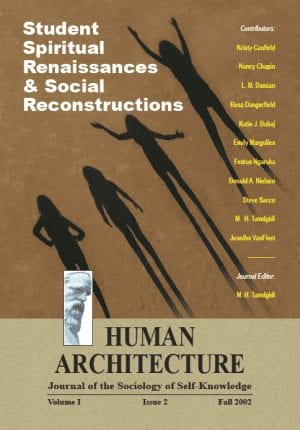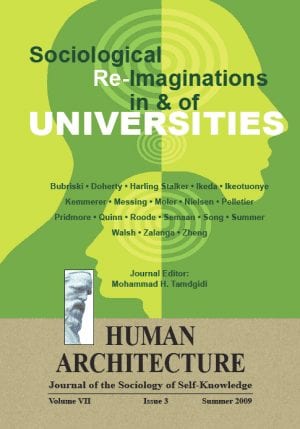Journal Article — From Alienation to Exploration: Breaking Free from the Iron Cages of My Life — by Annie Roper
$15.00
The social experience of alienation has affected most of my life. I’m here allowing my sociological imagination a free rein: I’m finally putting my personal troubles into broader perspective in reference to family, society and my place in the world.
Description
Abstract
The social experience of alienation has affected most of my life. I grew alienated from my core self when I attended Catholic schools and I’ve been working on changing that ever since. Those rules were hard to live by and they took their toll on my life, leaving me with social scars. I went from living what amounted to a child’s utopian life to one like prison, where I attended school and met bureaucracy, discipline and repression. My imagination was stifled, my creativity crushed, and my expectations became nil. Alienated and demoralized, I became a factory worker. I smoked pot, worked and drank. I abandoned free thinking for years, repressing memories and drinking and drugging to keep away pain and fear. My social worldview narrowed to tunnel vision—with only a bottle in sight before me. It is only now that I am facing my demons in this paper. I’m allowing my sociological imagination a free rein: I’m finally putting my personal troubles into broader perspective in reference to family, society and my place in the world.
Recommended Citation
Roper, Annie. 2003/2004. “From Alienation to Exploration: Breaking Free from the Iron Cages of My Life.” Pp. 48-57 in Students’ Critical Theories in Applied Settings (Human Architecture: Journal of the Sociology of Self-Knowledge: Volume II, Issue 2, 2003/2004). Belmont, MA: Okcir Press (an imprint of Ahead Publishing House).
The various editions of this issue of Students’ Critical Theories in Applied Settings can be ordered from the Okcir Store and are also available for ordering from all major online bookstores worldwide (such as Amazon, Barnes&Noble, and others).
Read the Above Publication Online
To read the above publication online, you need to be logged in as an OKCIR Library member with a valid access. In that case just click on the large PDF icon below to access the publication. Make sure you refresh your browser page after logging in.








